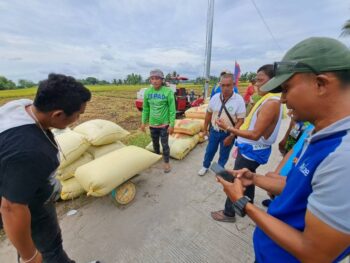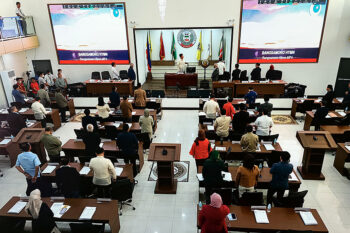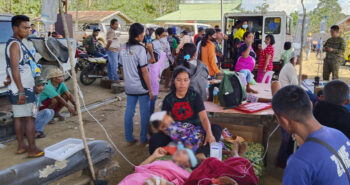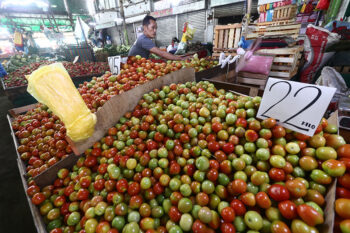CAGAYAN DE ORO CITY (MindaNews /13 November) — When the Catholic Bishops’ Conference of the Philippines (CBCP) issued the pastoral letter on ecology (An Urgent Call for Ecological Conversion, Hope in the Face of Climate Emergency) on July 16, 2019, many readers remarked that the most challenging part of it is the implementation of the 13 concrete ecological actions within the Catholic institutions. Implementing these actions would also make us realize that embracing Laudato Si’s integral ecological advocacy is not simply about planting trees or doing clean-up drives.
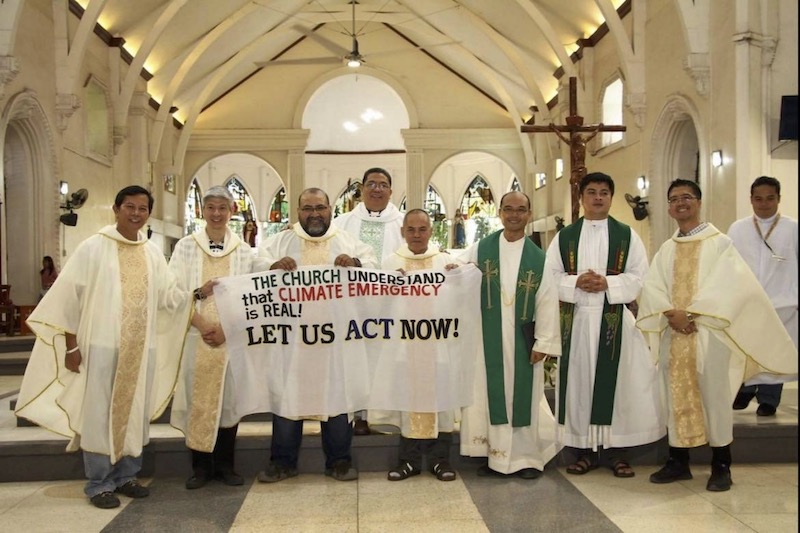
Divest the Church’s Money from Ecologically Destructive Projects
One of the most challenging ecological actions contained in the said CBCP document is to see to it that the financial resources of Catholic institutions (e.g., dioceses, churches, schools, seminaries, religious houses, etc.) are not being invested in ecologically destructive projects. In CBCP’s words: “Do not allow financial resources of our Catholic institutions to be invested in favor of coal-fired power plants, mining companies and other destructive extractive projects. Divestment from such investment portfolios must be encouraged.”[1]
Thanks to the CBCP for reminding the church institutions not to engage in unsustainable practices or become accomplices of ecologically destructive businesses such as “coal-fired power plants and all other plants dependent on fossil-fuel, including coal mining.” Indeed, it is morally inconsistent to claim that they have ecological advocacy but at the same time allow their financial resources to be invested in ecologically destructive projects.
Reject Dirty Money Earned by Ecologically Destructive Activities
It appears to us that the call to divest the church’s financial resources from ecologically destructive projects is not enough. The church is challenged to make a moral stance on issues of asking and receiving dirty money or money earned immorally, including mistreating others and destroying nature. Pope Francis clearly said that the Church does not want dirty money. He dared to tell its donors: “Please take your money away, burn it.”[2]
Mindanao has several edifying examples of Catholic institutions that try to be consistent with their ecological commitment. It can be recalled that, since the 1990s, the Diocese of Malaybalay has made an institutional commitment to promote environment-friendly practices and ecologically appropriate technologies. In fact, its very own radio station dxDB-AM has an explicit marketing policy that refuses to advertise ecologically destructive products including insecticides, pesticides, synthetic fertilizers, and other unsustainable practices.
Meanwhile, the Diocese of Tandag, in 2011, came up with a general rule that “no regular masses and blessings for office or equipments [sic] in the vicinity of the mining companies.” Moreover, in 2013, this same diocese made a definite position not to receive or ask “money or any material goods coming from mining companies, banana plantations or any other company that involves activities destructive to the environment.” It is hoped that the CBCP will critically appropriate this particular ecological advocacy in its subsequent pastoral letters.
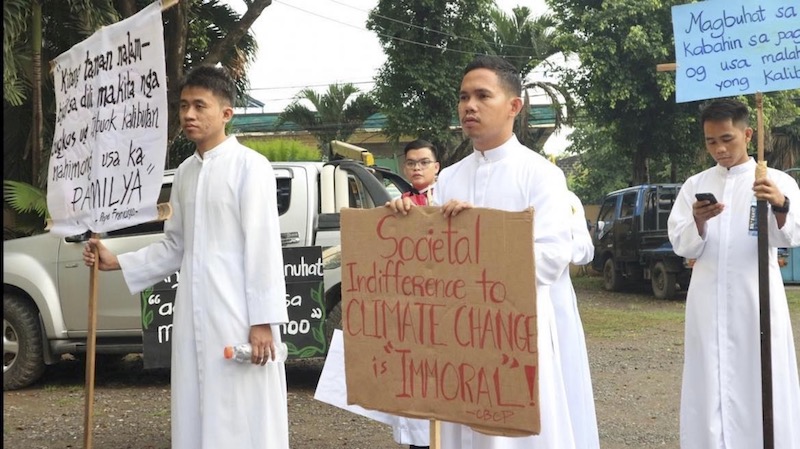
Inspired by the foregoing ecological commitment, St. John Vianney Theological Seminary (SJVTS) in Cagayan de Oro tries to be consistent with its self-appropriation of the Laudato Si’ principles. As revealed in its campaign material for the seminary’s financial support, “Anyone who shares SJVTS’ vision of forming future priests after the heart of the Good Shepherd and the seminary’s integral ecological commitment to care for our Common Home is always welcome” to become members of Vianney 300, which is the seminary’s lifetime financial support framework. In other words, SJVTS does not accept support or donations from ecologically destructive sources.
Freedom to Take a Prophetic Stance
The Catholic social teaching clearly affirms that the ecological destruction of nature is a moral issue over which the Church cannot remain neutral or silent. Even if denouncing this ecological sin would create division and conflict among ourselves in the ministry, this inconvenient consequence of our prophetic witnessing is certainly much better than to passively settle in fake peace and pretentious unity. After all, that is essentially part of the meaning of what Jesus Christ says: “Do you think that I have come to establish peace on the earth? No, I tell you, but rather division” (Luke 12:51).
Hopefully, by divesting the church’s financial resources from ecologically destructive projects and by rejecting the dirty money for the sake of protecting our Common Home, the church proves to be a credible prophetic witness that courageously denounces ecological sins. The church must do this in order not to compromise the sincerity of its witness. In this way, the church will be able to maintain a posture of freedom in taking a prophetic stance on ecological concerns and other related moral issues.
[MindaViews is the opinion section of MindaNews. Reynaldo D. Raluto is a Roman Catholic priest of the Diocese of Malaybalay. He is the Academic Dean of St. John Vianney Theological Seminary in Cagayan de Oro where he also teaches fundamental/systematic theology and Catholic social teaching. He is the author of Poverty and Ecology at the Crossroads: An Ecological Theology of Liberation in the Philippine Context (Quezon City: Ateneo de Manila University Press, 2015). His ecological advocacy includes planting/growing Philippine native trees, mountain climbing, and defending the rights of Indigenous Peoples.]
[1] Catholic Bishops’ Conference of the Philippines, “An Urgent Call for Ecological Conversion, Hope in the Face of Climate Emergency,”CBCP News (July 16, 2019); https://cbcpnews.net/cbcpnews/an-urgent-call-for-ecological-conversion-hope-in-the-face-of-climate-emergency/ (accessed July 20, 2019).
[2] Cited in Isla Binnie and Jon Boyle, “Pope says Church does not want ‘dirty money’,” Reuters (March 2, 2016); https://www.reuters.com/article/us-pope-poverty-idUSKCN0W4160 (accessed 11 November 2021).




